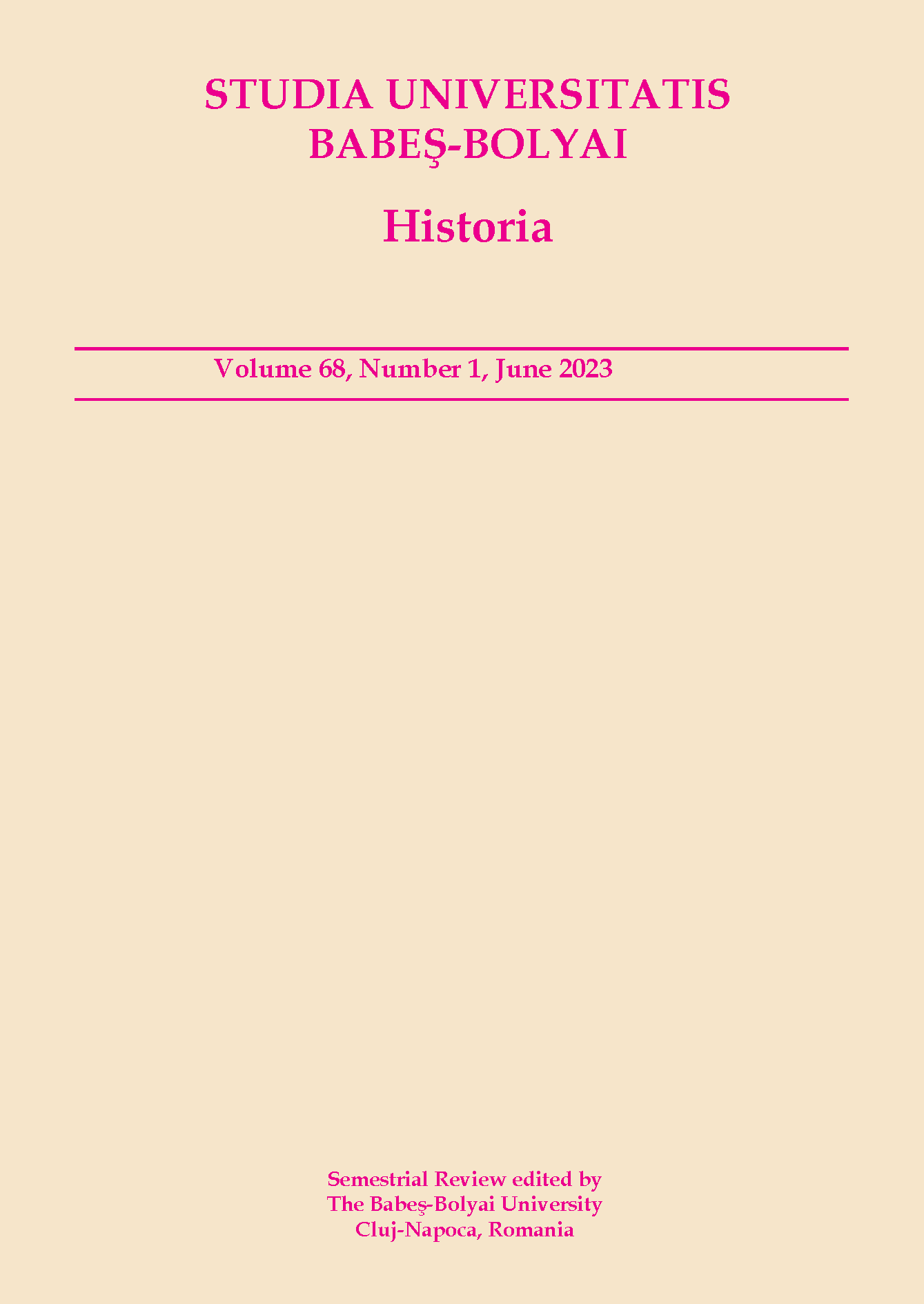A Friar-Bishop in the Episcopal Seat of Transylvania
DOI:
https://doi.org/10.24193/subbhist.2023.1.01Keywords:
designation of bishop, medieval Transylvania, friar-bishop, Bishop Benedict, Ladislau Kán, Gentilis, Holy CrownAbstract
Focused on the election of the bishop of Transylvania at the beginning of the fourteenth century, this study aims to present the circumstances in which friar Benedict, member of the Dominican Order, reached the episcopal seat of the Transylvanian diocese. However, in order to acquire this position, the first mendicant bishop of Transylvania had to file a litigation that claimed time, money, and numerous trips. Taking into account the ecclesiastical electoral practice from the turn of the thirteeenth-fourteenth centuries, as well as the regulations of canon law, the present study will also try to identify the political factors that influenced the election and ordination of friar Benedict. Since the occupation of the episcopal seat of Transylvania also had repercurssions on the strengthening of the central power, held to a greater or lesser extent by King Carol I of Anjou, a process in which the Holy See was also actively involved by sending the papal legate Gentilis, the study will try to explore the factors that ultimately led to Benedict’s acquisition of the most important ecclesiastical office in medieval Transylvania. Finally, the study proposes a brief presentation of the career of Benedict, the Dominican who became a bishop, the role he played in the recovery of the Holy Crown from Voivode Ladislau Kán, and the activity carried out for over a decade as bishop of Transylvania.
Rezumat: Concentrat asupra alegerii episcopului Transilvaniei la începutul secolului al XIV-lea, acest studiu îşi propune să prezinte împrejurimile prin care fratele Benedict, membru al Ordinului Dominican a ajuns în scaunul episcopal al diecezei transilvane. Pentru a dobândi însă acest lucru, primul episcop mendicant al Transilvaniei a fost nevoit să poarte un proces care a reclamat timp, bani şi numeroase călătorii. Luând în considerare practica electorală ecleziastică de la turnura secolelor XIII-XIV, precum şi reglementările dreptului canonic, studiul va încerca să identifice şi factorii politici care au influenţat alegerea şi hirotonirea călugărului Benedict. Deoarece ocuparea scaunului episcopal al Transilvaniei avea repercusiuni şi asupra întăririi puterii centrale, deţinute într-o măsură mai mare sau mai mică de regele Carol I de Anjou, proces în care s-a implicat activ şi scaunul papal prin trimiterea legatului papal Gentilis, studiul va încerca să exploreze acei factori care au condus într-un final la dobândirea celei mai importante funcţii ecleziastice din Transilvania medievală de către Benedict. De asemenea, studiul îşi propune prezentarea succintă a carierei lui Benedict, dominicanul devenit episcop, rolul jucat de acesta în recuperarea Sfintei Coroane de la voievodul Ladislau Kan, şi activitatea de peste un deceniu desfășurată în calitate de episcop al Transilvaniei.
Cuvinte cheie: desemnarea episcopului, Transilvania medievală, călugăr-episcop, episcopul Benedict, Ladislau Kán, Gentilis, Sfânta Coroană
Article: history; Received: 15.05.2023; Revised: 17.05.2023 Accepted: 10.06.2023; Available online: 30.06.2023.
Downloads
Published
How to Cite
Issue
Section
License
Copyright (c) 2023 Studia Universitatis Babeș-Bolyai Historia

This work is licensed under a Creative Commons Attribution-NonCommercial-NoDerivatives 4.0 International License.






